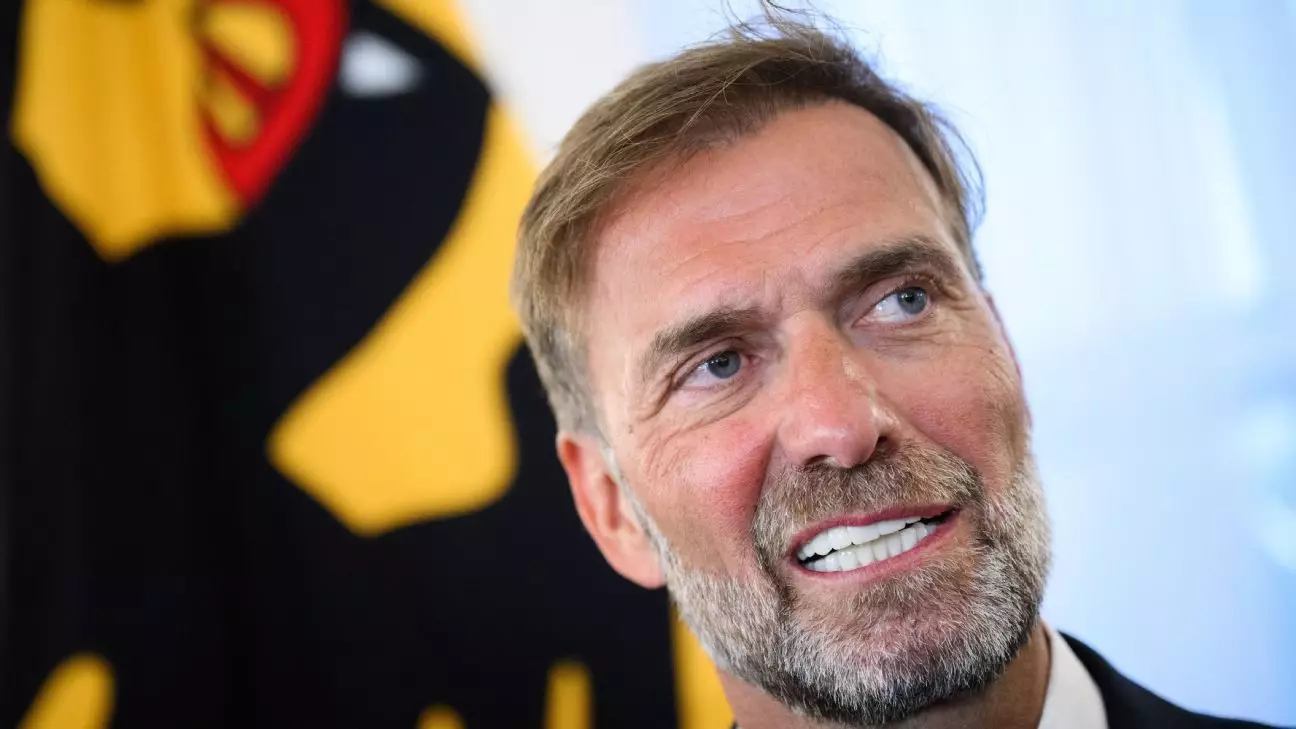Jürgen Klopp’s recent decision to lead Red Bull’s global football division is stirring up a wave of reactions, particularly from supporters of his former clubs in Germany. As he prepares to step into this unexpected role starting in January, Klopp’s transition from his esteemed position at Liverpool to an organization often criticized for its corporate influence raises questions about loyalty, the nature of football, and individual agency in the realm of sport.
Having finished his tenure at Liverpool, where he spent nearly a decade cultivating a squad that delivered both a Premier League title and a Champions League victory, Klopp’s announcement of joining Red Bull caught many by surprise. It is crucial to unpack the sentiments behind this shift, as it intertwines with complex emotions from fans who feel a sense of betrayal by the man they once hailed as a hero. Klopp’s reflections, as shared in an interview on Toni Kroos’ podcast, underscore the delicate landscape he is navigating as he steps back into the limelight of football after his intended hiatus.
The discomfort expressed by supporters stems from Red Bull’s contentious presence in German football, specifically through RB Leipzig. Many fans perceive the brand as a symbol of commercial encroachments that threaten the traditional values and community spirit inherent, or at least traditionally held, in clubs like Borussia Dortmund and FC Mainz. It’s a valid contention; as football professionalizes and commercializes, the stakes for nurturing grassroots connections intensify. Klopp’s reference to his affection for his former clubs and his desire not to “step on anybody’s toes” illustrates his awareness of this emotional landscape.
Compounding this are the reactions from die-hard supporters, such as the Mainz fans who voiced their displeasure through banners questioning Klopp’s judgment. For fans who have invested decades into these clubs, seeing a beloved figure align with an entity they oppose is understandably disheartening. It reflects a broader tension within the sport today: the balance between personal ambition, professional opportunity, and the deep-rooted affiliations that fans hold dear.
In light of the backlash, Klopp’s rationale stands out. He expressed a sentiment of futility in trying to please everyone, recognizing that any move he made after Liverpool was likely to elicit disappointment from certain factions of the fanbase. This self-awareness is commendable, as it showcases his understanding of the emotional ties that bind supporters to their clubs. In articulating his perspective on Red Bull’s involvement in bringing football back to East Germany, Klopp attempts to reshape the narrative around corporate influence by emphasizing its potential for development.
It is important to note that Klopp’s role with Red Bull is not one of direct coaching but more of an advisory position, collaborating with coaches across the franchise. In his view, this responsibility pertains to alleviating the isolation that many coaches experience. Despite the corporate criticisms directed toward Red Bull, Klopp’s acknowledgement of the importance of fostering a supportive infrastructure for coaching staff could be seen as an effort to bridge the gap between commercial interests and the welfare of football professionals.
As Klopp embarks on this new venture, his statements about taking a “long break” post-Liverpool indicate a complexity underlying his decision. At 57, he recognizes the limited timeframe for his professional ambitions yet expresses a desire to remain relevant in football. This pursuit of ensuring that his skills and experience are not relegated to the sidelines reveals both ambition and pragmatism.
Moreover, his future role represents a significant test of his values in a landscape characterized by commercialism. It will be intriguing to watch how Klopp balances the expectations of the commercial framework established by Red Bull with his personal ethos and affinity for the historical significance of football within local communities.
Ultimately, Klopp’s maneuver into corporate football prompts reflection on broader themes, including the commercialization of sport, loyalty, and the responsibilities of influential figures within the game. As he takes on this new chapter, fans, players, and clubs alike will be observing closely—waiting to see if he can indeed redefine the corporate engagement in the beautiful game, or if he will further entrench the divide between commercial success and grassroots authenticity.

Leave a Reply